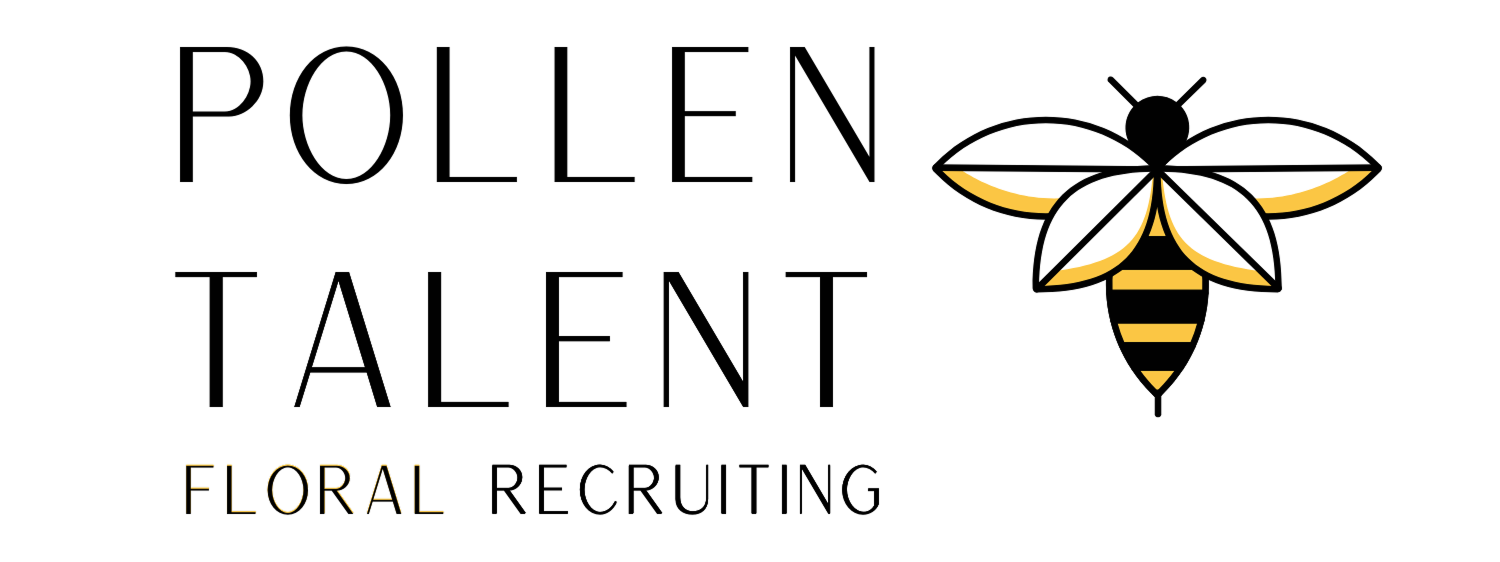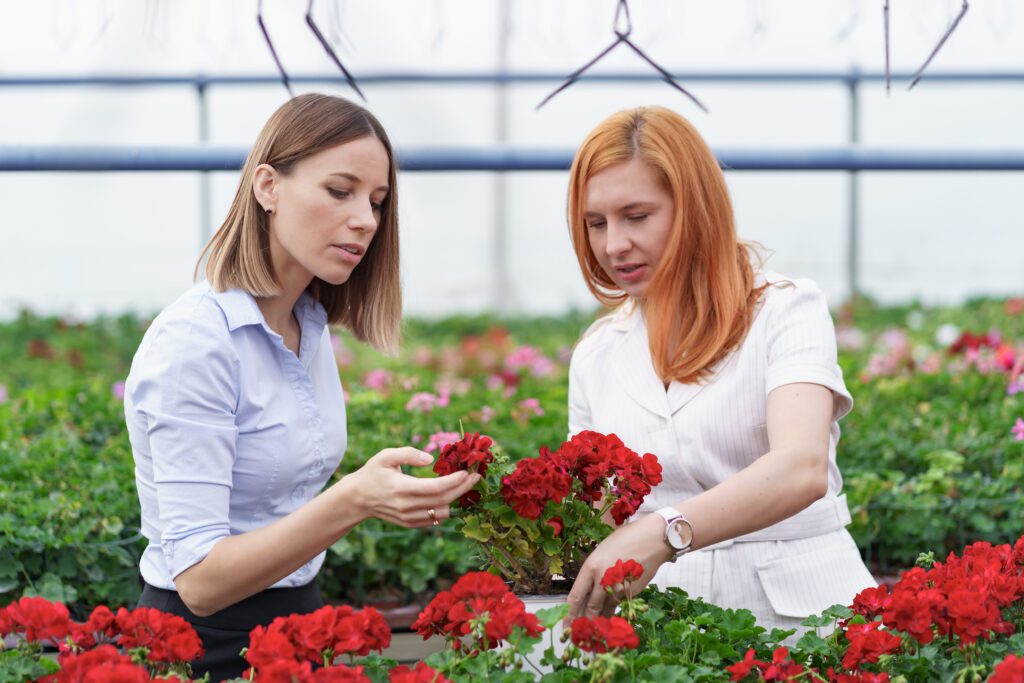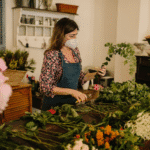In today’s fast-evolving floral industry, talent is everything. Whether you’re a boutique florist, a large-scale flower wholesaler, or a grower operating acres of farmland, the right people can make or break your business. But here’s a question that rarely gets asked: What if florists, flower wholesalers, and growers all shared their best floral industry recruitment strategies?
As margins shrink and demand grows for innovation, customer experience, and sustainable practices, your workforce has to be more than just reliable, they need to be adaptable, passionate, and skilled. That’s where cross-sector learning comes in.
In this article, we’ll explore how the floral supply chain can benefit from borrowing each other’s recruitment strategies. Whether you’re trying to build a sales team, hire skilled floral designers, or recruit dependable seasonal labor, there’s a goldmine of insight to be shared.
Key Takeaways
- Flower wholesalers, florists, and flower growers all face unique hiring challenges but have developed smart strategies worth sharing.
- Retail florists excel at hiring for creativity and client service.
- Flower wholesalers often build strong inside sales teams with B2B experience.
- Growers are masters of volume hiring for short cycles, leveraging automation and seasonal labor pools.
- Sharing hiring best practices across florists, wholesalers, and growers could create a stronger, more resilient workforce in the entire floral supply chain.
Why Hiring in the Floral Industry Needs a Fresh Approach
The floral industry is as seasonal as it is sentimental. Peak holidays, supply chain fluctuations, weather conditions, and shifting consumer preferences all impact labor needs. And unlike many other industries, the floral world must balance:
- Aesthetic design
- Agricultural expertise
- Logistics and operations
- Customer experience
That blend of artistry and supply chain complexity makes hiring in this field uniquely difficult. Yet, too often, hiring remains siloed. Florists only talk to florists. Growers stick to their farm networks. Flower wholesalers look for salespeople from unrelated B2B sectors.
But those lines are blurring. Cross-functional learning could be the key to smarter, faster hiring in the floral space.
What Makes Each Role Unique: Florist vs Wholesaler vs Grower
Before we dive into hiring strategies, let’s quickly define the core workforce needs in each group.
Florists
- Need creative, customer-facing individuals
- Small team dynamics
- Heavy focus on design, events, and retail sales
Flower Wholesalers
- Require inside sales reps, warehouse pickers, and buyers
- Fast-paced B2B logistics
- Need efficiency and relationship-building skills
Flower Growers
- Employ seasonal workers for planting, harvesting, and packing
- Require agricultural know-how and scalable labor
- Rely heavily on local labor pools or migrant workers
Each group has different hiring models, but many shared challenges.
Common Hiring Struggles Across the Floral Industry
Here’s where the pain points overlap:
- Seasonal labor crunches during the holidays and the wedding season
- High turnover, especially for entry-level roles
- Lack of specialized talent, especially in design and floral logistics
- Training gaps with new hires unfamiliar with industry-specific practices
- Retention challenges, especially for growers and wholesalers
By addressing these shared hiring obstacles together and refining floral industry recruitment strategies to better fit today’s labor market, the entire floral ecosystem stands to benefit.
Strengths in Florist Hiring Strategies
Retail florists often lead the charge when it comes to:
- Hiring for personality and soft skills, especially for client-facing roles
- Training apprentices into floral designers through mentorship
- Building tight-knit teams with high levels of collaboration
- Creating a creative culture that attracts artists and designers
Florists know how to find people who care, something wholesalers and growers can learn from when building culture within operational teams.
What Flower Wholesalers Do Right in Recruitment
A successful flower wholesaler operates like a high-volume machine. That means their hiring tends to focus on:
- Sales metrics and performance over personality
- Speed and process-driven training
- Backgrounds in logistics or B2B sales
- Creating roles with clear KPIs, which can help retain high performers
Wholesalers can teach florists how to build scalable systems and offer measurable performance feedback. They also have robust hiring pipelines, often reaching beyond the floral industry to find capable staff.
Flower Growers: The Experts in Seasonal and Scalable Hiring
No one understands volume hiring like flower growers.
- Many use labor agencies to bring in hundreds of workers seasonally
- They rely on well-defined onboarding and safety protocols
- Their HR departments are adept at compliance and labor laws
- They often automate certain processes and rotate crews across tasks
Growers can teach florists and wholesalers how to prepare for seasonal demand and manage large teams effectively, even if only for short periods.
Shared Lessons: Hiring Best Practices Across All Three
Cross-sector collaboration on floral industry recruitment strategies from onboarding to technology use can unlock more resilient, scalable hiring approaches.
1. Onboarding Matters
- Florists can adopt wholesalers’ structured onboarding
- Wholesalers can learn from growers’ safety-focused, checklist-based orientation
2. Performance Reviews
- Most florists skip formal performance reviews, but they work in wholesale and corporate environments
- Regular feedback can help soft sill roles grow without micromanagement
3. Job Shadowing
- Let new hires spend a day at a grower’s field, a wholesaler’s warehouse, and a florist’s studio
- Cross-training builds empathy and broadens skills
4. Shared Labor Pools
- During peak times, labor-sharing could work between local growers and florists
- Hiring co-ops could reduce costs and increase flexibility
5. Better Use of Technology
- Growers and wholesalers often use workforce software, florists can benefit from those tools
- Streamlining scheduling, time tracking, and payroll helps even small teams
Future Trends in Floral Industry Recruitment
The industry is evolving, and so are hiring strategies. Watch for these trends:
- Digital job boards and niche platforms for floral industry roles
- Hiring for values alignment, especially around sustainability and company culture
- Remote floral sales roles, especially for wholesalers , growers and distributors selling nationwide or internationally
- Flexible contracts and freelance arrangements
- Recruitment marketing, building your employer brand through social media and employee storytelling
As the demand for fresh flowers continues to rise post-pandemic, businesses that proactively modernize their floral industry recruitment strategies will gain a competitive edge.
Building a Cross-Functional Hiring Strategy
Here’s how to bring it all together:
- Audit your hiring process: Where are the gaps? What’s taking too long?
- Document your best practices: Onboarding, reviews, training
- Connect with industry peers: Set up a hiring roundtable or join the floral industry associations
- Pilot new roles: Try hybrid roles like “design + sales” or “grower liaison” to create flexibility
- Invest in internal growth: Promote from within using defined paths, just like many wholesalers do
The key to better recruitment lies in breaking out of your hiring silo.
Final Thoughts: Let’s Learn From Each Other
No florist, flower wholesaler, or grower has it all figured out. But together, the floral industry can build stronger teams, reduce turnover, and create a more resilient workforce.
Whether you’re hiring your next designer, your warehouse manager, or your field crew, there’s something to be gained from how others in the industry operate.
Take action today: Review your current hiring playbook, talk to peers across the industry, and explore new approaches. The future of floral recruitment is collaborative.
FAQs
- What’s the biggest hiring challenge for flower wholesalers?
Finding experienced B2B salespeople who understand floral logistics and can manage high-volume accounts. - Can florists and growers work together during peak seasons?
Yes, many do! Growers often lend labor to florists during wedding season, and florists support farm events. - What are some floral industry recruitment strategies for entry-level roles?
Look for local design schools, offer part-time seasonal positions and promote hands-on training. - What licenses are needed for flower wholesalers?
It varies by state, but typically includes a resale certificate and compliance with local agricultural import laws. - How can flower growers improve worker retention?
Offer repeat seasonal contracts, clear pay structures, and basic training incentives (like bonuses or safety awards).
Looking to strengthen your floral hiring process?
Whether you’re a florist, a grower, or a flower wholesaler, our team helps businesses like yours build smart hiring workflows that scale with your seasons. Let’s talk recruitment strategy—schedule a free floral hiring strategy session today.





